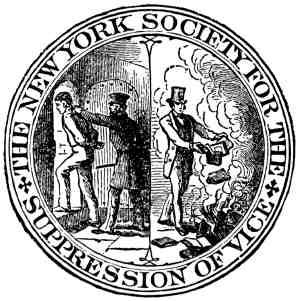***in 1976, when I was teaching a class about the separation of church and state in American law. I was talking about the connection between religion and the federal ban on mailing so-called obscene matter—including, as Congress viewed things a century earlier in 1873 when it passed the Comstock Act, not just printed materials but contraceptives and pregnancy-ending drugs or devices that some religious groups considered sinful.
Named after the misogynist crusader Anthony Comstock, it outlawed, among other things, mail-order condoms, which were being delivered to men along with risqué photos that its sponsors saw as ungodly aids to sexual pleasure and accompaniments to prostitution. Despite several efforts to repeal it, the bulk of the Comstock Act has remained on the books to the present day and could still be used by anti-abortion federal prosecutors against anyone who distributed by mail materials for medical management of miscarriages, including by inducing abortion, whether with mifepristone or other medications. And it could be used that way even if the Congress we elect this fall does not enact a nationwide abortion ban.
One question I explored with students of the Constitution in 1976 was whether federal enforcement of the Comstock Act’s prohibition against mailing pregnancy-ending drugs would be precluded by the Supreme Court’s then-recent overturning of the sweeping abortion ban that the Texas legislature had enacted in the Comstock spirit. Did that decision, Roe v. Wade (1973), invalidate a nationwide federal ban on some category of abortions or only a ban enacted by a single state with especially little regard for women’s control over their own bodies?
Depending on the results of the November elections we may find that the Comstock Act has vigorous support in the United States Department of Justice. - GWC
No comments:
Post a Comment